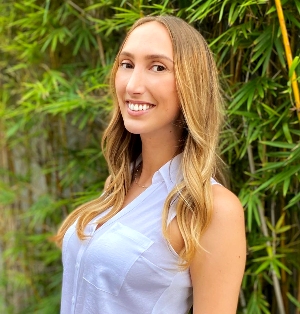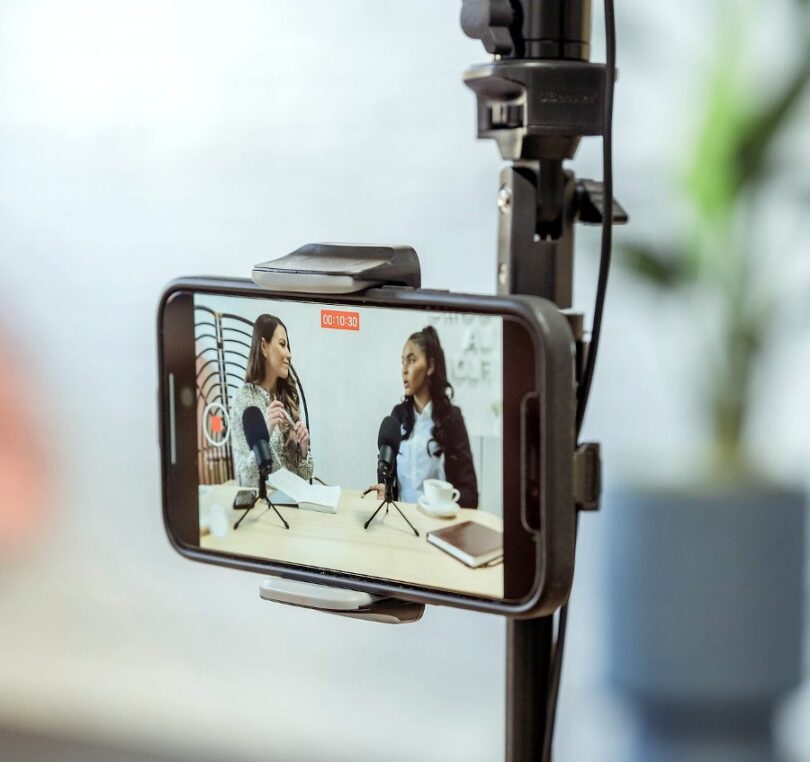Social media allows doctors and medical professionals to educate patients, battle societal stigmas in areas such as mental health, body image, and addiction, and share medical insight on current events. At the same time, content creators in the medical space take on a weighty responsibility when venturing onto social media platforms so often strewn with pitfalls and professional perils.
Alaina Chiappone, a publicist and reputation management specialist at Otter PR, offers her tips on building a healthy social media presence while maintaining patient privacy and establishing personal and professional boundaries.
How Physicians Protect Patient Privacy on Social Media

Alaina Chiappone
Social media has transitioned from a world of written content to a sea of images and videos. In order to appeal to broader audiences on popular platforms like Instagram, YouTube, and TikTok, doctors need to prioritize engaging visual content. At the same time, however, they must ensure not to post content containing any sensitive patient information.
“We frequently post pictures of our kids, our vacations, and even our dinners to social media channels,” says Chiappone. “So much of our personal lives are on these platforms. On occasion, doctors can lose sight of professional boundaries when posting to their social media accounts.”
With personal content posted so freely, even professionals slip up at times when it comes to sharing pictures and videos. As such, physicians must obtain permission from patients before using a photo on social media. Before taking a picture, doctors should explain why they would like the image, what it will be used for, and where it will be shared. If the patient declines, that is the final word.
If patients consent to sharing photos, doctors should make every effort to protect their privacy before posting the content. “Make sure to review any images before posting it to social media,” Chiappone advises. “Visuals should effectively communicate the patient’s condition, but never reveal patients’ full names, birthdates, or other identifying information.”
Chiappone also notes that whenever physicians post content featuring their patients’ medical conditions, they must obtain written consent. “Make sure your legal and marketing departments are on the same page,” she says. “Ensure a consent form is drafted and consistently used. If you don’t have one for your practice yet, an attorney can help you draft a document. The patient’s consent and your honesty are crucial.”
Professional Boundaries for Clinicians who Post on Social Media
The American Medical Association (AMA) provides guidance for social media posts. Its code of medical ethics gives direction on patient privacy and also on establishing professional boundaries.
Patient privacy is important, as is the privacy of doctors. The AMA advises doctors to make use of the privacy settings offered by each platform. “Even with privacy settings, anything you post online should be considered permanent and accessible by the public,” Chiappone remarks. “Audit your social media channels frequently to keep tabs on what you’ve posted and what people are saying about you.”
To establish appropriate patient/physician boundaries, medical professionals should keep personal and professional accounts separate. However, even a physician’s personal social media content is subject to scrutiny, as all of the standards for professional in-person interactions with doctors also apply online. “As a physician, your posts on social media cannot be taken lightly,” says Chiappone. “Even your personal posts have the power to damage your relationships with your patients and colleagues. They can even damage your professional reputation and the reputation of the entire practice.”
For better or worse, healthcare professionals are held to a high standard during the work day and in their private lives. For this reason, they must consider carefully everything they post on social media.
“To keep boundaries clear, avoid posting about patients, colleagues, supervisors, and work in general to your personal accounts,” advises Chiappone. “In addition, avoid posting personal information that could negatively affect the way you are viewed by your patients on your professional accounts. Pictures of you drinking alcohol or posts containing political rants are not just about your private life outside work. Even if the content has nothing to do with healthcare, it has the power to create long-lasting repercussions for your career.”
Whether creating channels to build a brand or document personal moments, medical professionals have a lot to consider. Medical principles and legal regulations do not change when healthcare specialists venture online, but trouble arises when professional and personal boundaries blur. Privacy and professionalism are the keys to keeping those boundaries intact.








